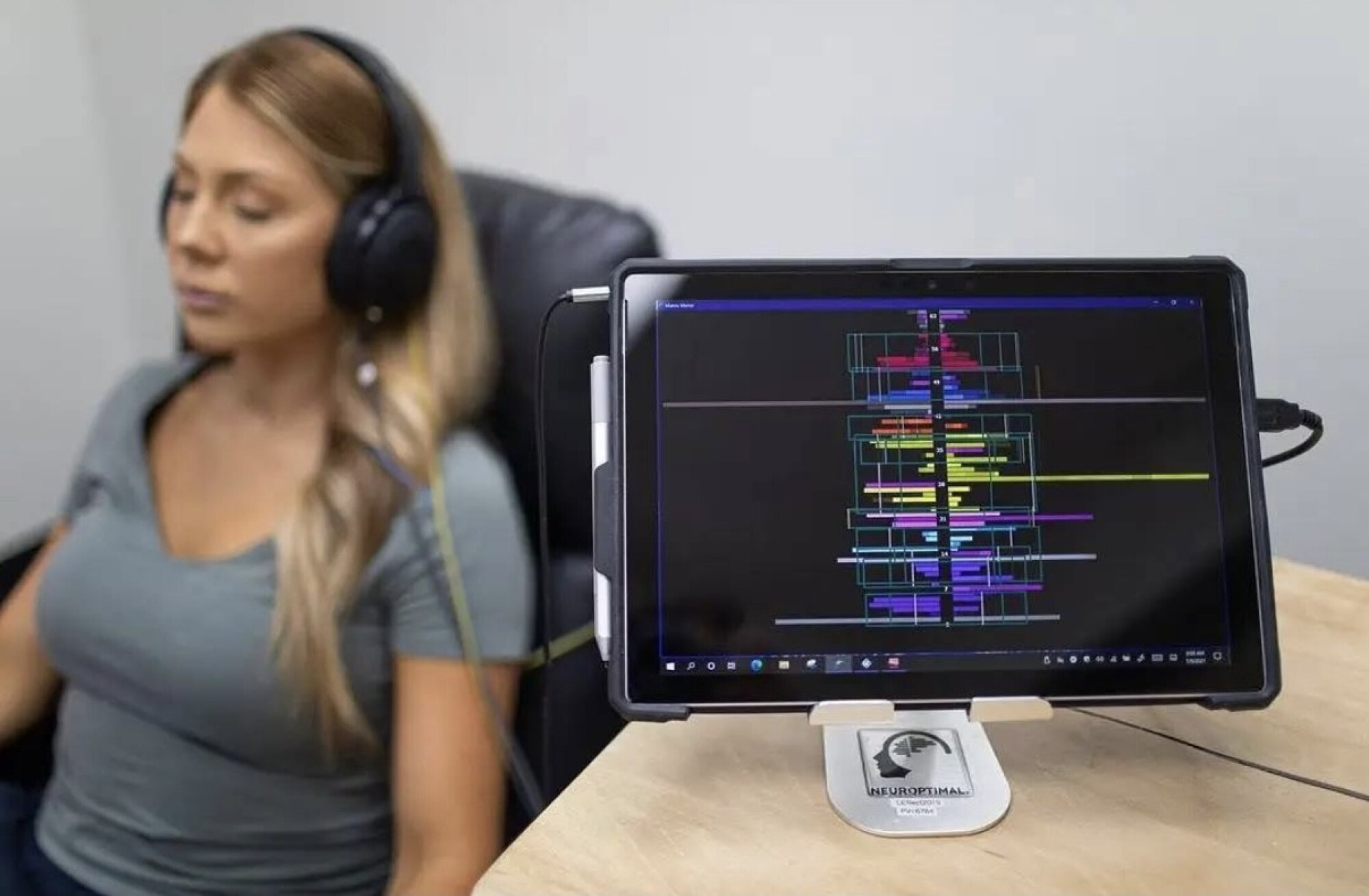Insomnia and Negative Affect: Understanding Insomnia and the Defeatist Outlook

Insomnia and Negative Affect: Understanding Insomnia and the Defeatist Outlook
The Hidden Connection Between Sleep Loss and Emotional Decline
The alarm sounds at 6:30 AM. After another night of fragmented sleep, you drag yourself out of bed feeling as if you never truly rested. Tasks that once seemed manageable now loom impossibly large. Optimism feels like a distant memory, replaced by a persistent sense that everything requires too much effort for too little reward.
This experience—where chronic sleep deprivation transforms into pervasive negativity—represents more than just feeling tired. Research increasingly reveals a profound neurobiological relationship between Insomnia and negative affect that fundamentally alters how we perceive ourselves and the world around us.
The Neurological Cascade of Sleep Deprivation
“Sleep loss creates a specific pattern of brain activity that directly promotes negative emotional processing,” explains Dr. Matthew Walker, Professor of Neuroscience at UC Berkeley and author of “Why We Sleep.” “Brain scans show that even one night of poor sleep amplifies activity in the amygdala—our brain’s threat detection center—while simultaneously reducing connectivity with prefrontal regions that typically regulate emotional responses.”
This neurological shift doesn’t merely make us grumpy or irritable. It fundamentally rewires how our brains process information, creating a reality filter that magnifies threats, minimizes rewards, and drains life’s potential for joy or meaning.
Dr. Allison Harvey, Director of the Golden Bear Sleep and Mood Research Clinic at UC Berkeley, notes: “The relationship between sleep and mood isn’t just correlational—it’s causal and bidirectional. Poor sleep directly causes negative mood states, further disrupting sleep, creating a vicious cycle that’s extraordinarily difficult to break without addressing both components.”
Beyond Mood: The Defeatist Cognitive Style
What makes chronic insomnia particularly insidious is how it extends beyond momentary emotional states to create enduring cognitive patterns. After weeks or months of poor sleep, many people develop what sleep researchers call a “defeatist cognitive style”—a persistent lens through which the world appears overwhelming, unrewarding, and beyond their capacity to improve.
David Mayen, Founder and Program Director at Sleep Recovery, observes this pattern regularly: “When new clients first come to us, they often don’t realize how profoundly sleep has altered their outlook. They’ll say things like ‘I’ve just become a negative person’ or ‘I don’t enjoy anything anymore,’ attributing these changes to their personality rather than their sleep deprivation.”
This defeatist outlook manifests through several distinctive cognitive patterns:
- Catastrophic thinking: The tendency to assume worst-case scenarios for even minor challenges
- Effort-reward disconnect: The perception that efforts rarely yield worthwhile results
- Diminished self-efficacy: Reduced confidence in one’s ability to influence outcomes
- Cognitive rigidity: Difficulty generating alternative solutions or perspectives
- Negative forecasting: The expectation that future experiences will be predominantly negative
Together, these patterns create a psychological state in which giving up feels rational rather than defeatist—the brain has calculated that continued effort isn’t worthwhile.
The Physiological Perfect Storm
Compounding these neurological and cognitive changes are direct physiological effects of insomnia that further reinforce adverse effects.
“Sleep deprivation creates a hormonal environment that mimics chronic stress,” explains Dr. Jeffery Wilson, Clinical Director at Sleep Recovery. “Cortisol levels remain elevated, inflammatory markers increase, and the body exists in a persistent state of physiological threat response.”
This hormonal cascade creates physical sensations—tension, fatigue, digestive disturbances, pain sensitivity—that the brain interprets as further evidence that something is fundamentally wrong. The body’s stress signals reinforce the mind’s negative assessments, creating a mind-body feedback loop that feels inescapable.
Dr. Rachel Manber, Director of the Stanford Sleep Health and Insomnia Program, describes this mind-body relationship: “The subjective feeling of being tired isn’t just psychological—it reflects real physiological depletion. When we’re chronically sleep-deprived, even small tasks require disproportionate effort because our bodies lack the biological resources to function optimally.”
Beyond Willpower: Why Positive Thinking Falls Short
Common advice to “think positively” or “push through” insomnia-induced negativity fundamentally misunderstands the neurobiological nature of the problem. When sleep-deprived, the brain regions responsible for optimistic thinking and cognitive reframing—particularly the prefrontal cortex—show reduced activity and connectivity.
“Telling someone with chronic insomnia to ‘just think more positively’ is like telling someone with a broken leg to ‘just walk normally,'” notes Mayen. “The very brain mechanisms needed for positive cognitive reframing are what insomnia impairs.”
This dynamic explains why traditional cognitive approaches alone often fail for insomnia-related mood disturbances. The problem isn’t a lack of positive thinking skills—it’s that the brain lacks the physiological capacity to implement those skills effectively while sleep-deprived.
Real Lives, Real Impact
Michael T., a 42-year-old software engineer, experienced this transformation firsthand: “After about six months of sleeping just 3-4 hours most nights, I became someone I didn’t recognize. I used to be the optimistic problem-solver on my team. Then, I became the person who saw obstacles everywhere. I stopped volunteering for projects. I assumed new initiatives would fail. My performance reviews reflected this change, but I couldn’t seem to snap out of it.”
After completing Sleep Recovery’s program, Michael’s outlook transformed: “Within weeks of returning to regular 7-hour sleep, my entire perspective shifted. Problems that seemed insurmountable became interesting challenges again. I remembered why I enjoyed my work. My colleagues noticed the change before I did—they said they ‘got the old Michael back.'”
Jennifer K., a 38-year-old teacher, shared a similar experience: “Insomnia didn’t just make me tired—it made me hopeless. I started seeing my students’ challenges as unfixable rather than opportunities for growth. I considered leaving teaching altogether. Once my sleep improved, I was shocked at how differently I viewed the same classroom situations. The problems hadn’t changed—my capacity to face them had.”
Breaking the Cycle: Addressing Both Sleep and Affect
Understanding the bidirectional relationship between Insomnia and negative affect reveals why effective treatment must address both components simultaneously.
“Traditional insomnia treatments often focus exclusively on sleep hygiene or cognitive behavioral therapy for insomnia, which are valuable but insufficient when negative affect has become entrenched,” explains Dr. Wilson. “Similarly, treating the mood component alone through antidepressants or therapy rarely resolves the sleep issues driving the negative affect.”
Sleep Recovery’s approach targets this connection directly through several integrated mechanisms:
Brainwave Stabilization
“Specific brainwave patterns characterize both insomnia and negative emotional states,” notes Mayen. “By training the brain to normalize these patterns, we address both issues simultaneously rather than treating them as separate problems.”
Physiological Regulation
Restoring standard autonomic nervous system functioning that governs both sleep cycles and emotional regulation.
“Sleep and emotional regulation share underlying physiological systems,” explains Dr. Wilson. “When we help the body shift from sympathetic ‘fight-or-flight’ dominance to parasympathetic ‘rest-and-digest’ functioning, sleep and mood naturally improve.”
Cognitive Restructuring
Addressing negative thought patterns specifically within the context of improved sleep rather than as a separate therapeutic target.
“We find that many negative thought patterns resolve spontaneously once sleep improves,” notes Mayen. “The remaining patterns become far more responsive to cognitive approaches once the brain has the resources to implement new thinking strategies.”
The Recovery Timeline: What to Expect
For those caught in the insomnia-negative affect cycle, understanding the typical recovery trajectory provides crucial hope during the restoration process.
Most clients report a specific sequence of improvements:
- First 2-3 days: Initial improvements in sleep duration and continuity
- Weeks 1-2: Reduction in physical symptoms of stress and fatigue
- Weeks 2-3: Decreased catastrophic thinking and improved stress tolerance
- Weeks 4-8: Return of positive emotions and interest in previously enjoyed activities
This timeline varies based on insomnia severity and duration, but the pattern—physical improvements preceding emotional and cognitive changes—remains consistent across cases.
Frequently Asked Questions
Q: How can I tell if my negative outlook stems from Insomnia rather than depression or burnout?
A: While these conditions share symptoms, several markers suggest sleep-driven negative affect:
- Your mood is typically worst in the morning and improves somewhat throughout the day
- Brief periods of improved sleep produce noticeable but temporary mood improvements
- Your negative thinking focuses more on capacity/energy concerns than worthiness concerns
- The negative outlook developed concurrently with or shortly after sleep problems began
Q: Can addressing sleep alone resolve negative affect, or do I need specific treatment for both?
A: For many people, resolving sleep issues leads to spontaneous improvement in mood and outlook. However, when Insomnia and negative affect have persisted for months or years, an integrated approach addressing both components simultaneously typically produces faster and more complete recovery.
Q: How does sleep-related negative affect differ from clinical depression?
A: While they share symptoms, sleep-driven negative affect typically responds more rapidly to sleep improvement, shows a more substantial diurnal variation (worse in the morning, better in the evening), and features more energy/capacity concerns than self-worth concerns. However, chronic Insomnia can eventually trigger clinical depression, and many people experience both conditions simultaneously.
Q: Will medications like sleeping pills or antidepressants break the cycle?
A: Medications may temporarily relieve symptoms but rarely address the underlying mechanisms connecting Insomnia and negative affect. Most sleep medications disrupt natural sleep architecture, potentially worsening the cognitive and emotional aspects of sleep deprivation even while increasing sleep duration.
Q: How long does recovery take once proper treatment begins?
A: Most people notice initial sleep improvements within 2-3 days of beginning appropriate treatment. Mood and outlook typically begin improving 2-4 weeks after sleep stabilizes, with complete restoration of positive affect usually occurring within 2-3 months for cases not complicated by other factors.
Beyond Individual Suffering: The Societal Impact
The insomnia-negative affect cycle extends beyond individual suffering to affect families, workplaces, and communities. When large segments of the population experience chronic sleep deprivation, the collective outlook suffers.
Dr. Meir Kryger, Professor of Medicine at Yale School of Medicine and past president of the American Academy of Sleep Medicine, observes: “We’re seeing population-level changes in outlook and resilience that parallel rising rates of insomnia. This problem isn’t coincidental—it reflects the neurobiological reality that sleep-deprived societies become less optimistic, creative, and solution-oriented.”
This connection becomes particularly relevant during challenging times when resilience and adaptability matter most. Sleep recovery doesn’t just restore individual well-being—it rebuilds the cognitive and emotional resources needed for collective problem-solving and growth.

The Path Forward: Hope Through Understanding
For those caught in the grip of Insomnia and its emotional consequences, understanding the neurobiological connection between sleep loss and negative affect offers a valuable perspective. The defeatist outlook isn’t a personality flaw or moral failing—it’s the brain’s predictable response to ongoing sleep deprivation.
“Recognizing that these changes stem from sleep disruption rather than personal weakness can be profoundly liberating,” notes Mayen. “Recovery is possible not through greater willpower, but through addressing the underlying sleep issues driving these changes.”
With proper treatment addressing the sleep disruption and its emotional consequences, most people can expect improved sleep and a fundamental restoration of their capacity for positive engagement with life.
To learn more about Sleep Recovery’s integrated approach to insomnia and its adverse emotional affect, visit https://sleeprecovery.net or call 1-800-927-2339 for a free consultation.


